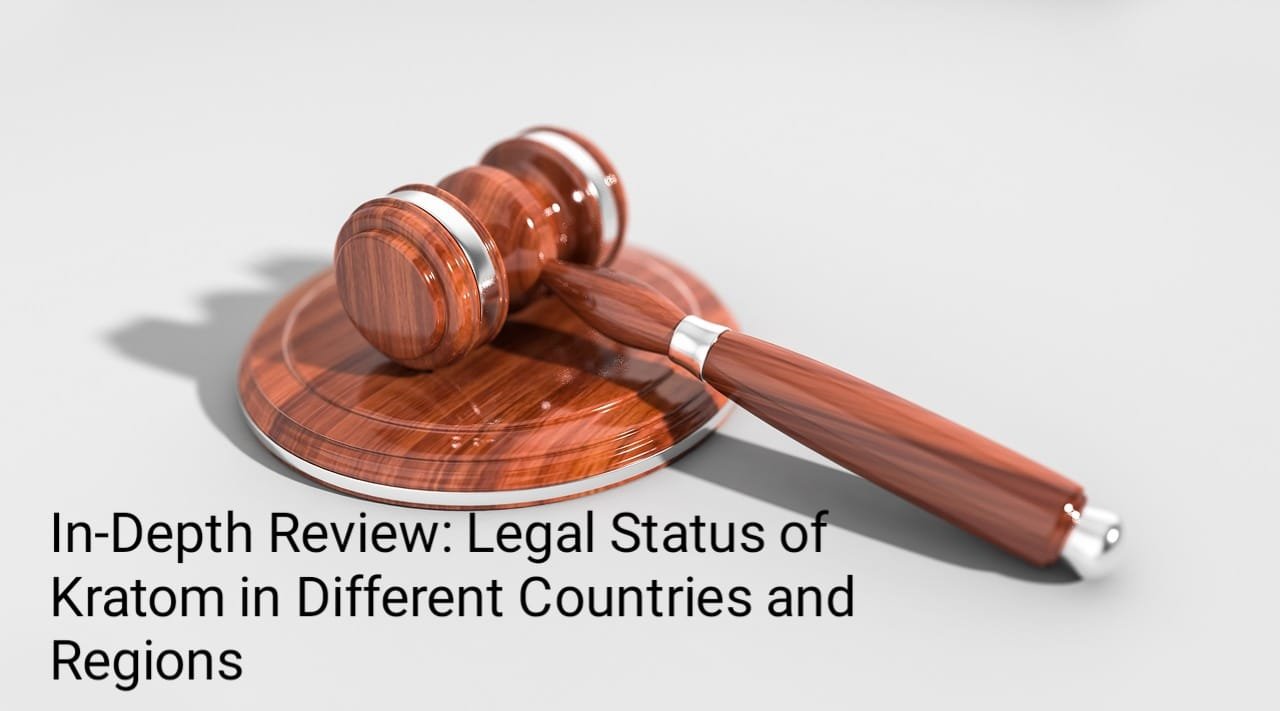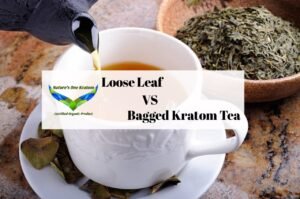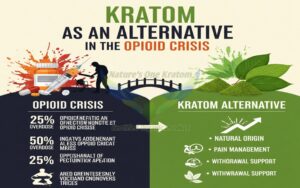
You’ve probably spotted kratom online, in stores, and even at farmers’ markets, but is it legal? And what about its safety? Dive into this guide to learn the essentials!
Table of Contents
Kratom can be found in various places across the United States, from online shops to smoke stores and farmers’ markets. With its wide availability, you might be wondering if it’s safe or legal. While medical experts indicate that kratom has risks that often outweigh its benefits for most people, its legal status really depends on where you live.
This guide aims to clarify how kratom affects you, if it’s legal near you, and how to seek help if you find yourself struggling with addiction.
What Exactly Is Kratom?
Kratom, also known as Mitragyna Speciosa, is a psychoactive substance derived from leaves native to Indonesia, Malaysia, Papua New Guinea, and Thailand. People generally consume the leaves by chewing, taking capsules filled with ground leaf powder, or brewing tea to experience its effects. For many in Southeast Asia, this vibrant green leaf has been a go-to remedy for pain relief and mood enhancement since at least the 19th century.
Although it’s often promoted today for its purported healing properties or as a substitute for opioids, many medical professionals agree that the potential health risks associated with kratom can make it unsafe. The active ingredient in kratom varies significantly by plant, leading to unpredictable effects. This inconsistency can increase the risk of overdose and result in serious side effects, such as seizures, hallucinations, chills, vomiting, liver damage, or even death. Because of these concerns, kratom has made it onto our list of substances to watch in 2021.
Despite the risks, there are many advocates for kratom who are actively fighting to keep it legal, albeit under greater regulations. A significant push known as the Kratom Consumer Protection Act (KCPA) seeks to maintain kratom’s legality within specific states while empowering regulators to enforce guidelines, including age restrictions. Several states have adopted the act to shield consumers from unregulated products that may contain harmful ingredients like synthetic kratom or fentanyl. Currently, four states have successfully passed KCPA bills, and others, like Oregon, are working towards more legal and regulated approaches to kratom.
Is Kratom Legal Near Me?
Green: States that have passed KCPA bills. Red: States that have banned kratom completely. Kratom remains unregulated in all other states.
In the U.S., kratom isn’t governed at the federal level, which means there’s no official oversight ensuring the quality and safety of kratom products sold here, including online. Due to the substance’s potentially harmful effects and addictive nature, the Drug Enforcement Agency (DEA) has considered classifying kratom as a controlled substance.
While kratom is technically legal federally, some states and local jurisdictions have opted to ban the substance, making it illegal to sell, possess, grow, or use. Other areas have set age restrictions. Here’s a breakdown of kratom’s legality across the U.S.:
Kratom is illegal to buy, sell, possess or use:
- Alabama
- Arkansas
- Indiana
- Rhode Island
- Vermont
- Wisconsin
Kratom is legal, but may be regulated:
- Alaska
- Arizona – KCPA passed
- California – Outside San Diego, where it’s banned, kratom is legal
- Colorado – Outside Denver, where consumption is illegal, kratom is legal
- Connecticut
- Delaware
- Florida – Except in Sarasota County, kratom is legal
- Georgia – KCPA passed
- Hawaii
- Idaho
- Illinois – Legal for those over 18, except in Jerseyville
- Iowa
- Kansas
- Kentucky
- Louisiana
- Maine
- Maryland
- Massachusetts
- Michigan
- Minnesota
- Mississippi – Legal outside Union County
- Missouri
- Montana
- Nebraska
- Nevada – KCPA passed
- New Hampshire – Legal for those over 18
- New Jersey
- New Mexico
- New York
- North Carolina
- North Dakota
- Ohio
- Oklahoma
- Oregon
- Pennsylvania
- South Carolina
- South Dakota
- Tennessee – Legal for those over 21
- Texas
- Utah – KCPA passed
- Virginia
- Washington
- West Virginia
- Wyoming
Is Kratom Legal in Other Countries?
Across the globe, kratom laws differ significantly. In countries like:
- Australia
- Denmark
- Finland
- Israel
- Japan
- Latvia
- Lithuania
- Myanmar
- Malaysia
- New Zealand
- Poland
- Romania
- Russia
- Singapore
- South Korea
- Sweden
- Thailand
- Vietnam
kratom is illegal. In countries like Ireland, Italy, and the UK, regulations may vary from city to city. Furthermore, the legal status of kratom can be unclear in many African nations and China.
Interestingly, Thailand has recently reconsidered its stance on certain illegal substances, so kratom’s legal status may evolve. Still, as kratom gains notoriety, regions that don’t currently restrict it may decide to implement bans in the future.
Why Isn’t Kratom Legal Everywhere?
Despite some medicinal use in various areas, kratom is generally recognized as an addictive substance. The Food and Drug Administration (FDA) has not found any evidence confirming kratom’s therapeutic benefits, which affects its reputation as a medicinal option.
Additionally, kratom carries a wide array of potential side effects. These can range from nausea, vomiting, and chills, to more serious issues like hallucinations and delusions. Long-term kratom use may lead to severe weight loss, skin darkening, frequent urination, constipation, muscle pain, and liver damage.
In extreme scenarios, kratom use has resulted in difficulty breathing, seizures, and, in some cases, coma. When taken with other substances, the risk of overdose significantly increases.
Due to these reasons, many states and municipalities have decided to ban kratom in an effort to protect local residents from its adverse health impacts and the potential for addiction.
Getting Help for Kratom Addiction
While kratom is sometimes viewed as a way to overcome opioid addiction, it is highly addictive itself. It’s possible to develop a kratom dependency in as little as six months, with withdrawal symptoms resembling those of opioid withdrawal, including strong cravings, nausea, vomiting, and muscle aches.
If you suspect you’re experiencing kratom withdrawal, it’s essential to seek guidance from a healthcare professional who specializes in addiction treatment. Facing kratom withdrawal can be tough, and a doctor can assist you through a detox process to help you regain control and tackle any underlying issues related to your kratom use, such as chronic pain, opioid addiction, or depression.
Comprehensive kratom addiction treatment often includes behavioral or family therapy, which helps you explore the root causes of your addiction and gain skills to navigate triggers that could lead to drug use. You’ll also receive aftercare support to make it easier to reintegrate and build a healthy life free from relapse.
Ultimately, kratom addiction can be serious, so it’s vital to collaborate with a professional during your recovery. Feel free to reach out using the contact number below or send us a message in the chat to embark on your journey to recovery.
News About Kratom Legality
The legal landscape surrounding kratom is constantly evolving. Advocates for kratom are striving for broader access in more states while consumer watchdog groups are advocating for stricter regulations. Here are some of the recent updates on the legal status of kratom:
Oregon Adds Restrictions
In early 2020, Oregon introduced several regulations on kratom, including a minimum age of 21 and a requirement that anyone manufacturing or selling kratom disclose it as an ingredient. Oregon is among 19 states actively considering the Kratom Consumer Protection Act. Read more.
Utah Keeps Kratom Legal
To prevent overdoses and other risks associated with impure kratom, Utah enacted legislation that keeps kratom legal, but with regulations. Lawmakers have established guidelines on who can sell it, how it’s produced, how it’s labeled, and who is allowed to purchase it. Read more.
Kratom Stays Unregulated in Mississippi
Though some local jurisdictions in Mississippi have prohibited kratom, the state recently dismissed a bill that would have either banned or regulated it. This decision keeps Mississippi one of the few Southern states with no formal stance on kratom, while neighboring states like Alabama and Arkansas have implemented bans and Georgia has established regulations.








4 comments
Pingback:
Kratom And Coffee Family: A Comprehensive Review - Nature's One Kratom : Indonesia Kratom Supplier | Best Kratom VendorPingback:
¿Es legal el kratom? (español) - Nature's One Kratom : Indonesia Kratom Supplier | Best Kratom Supplier 2025Pingback:
Global Kratom Trade: Markets, Laws & Export Outlook 2025 - Nature's One Kratom : Indonesia Kratom SupplierPingback:
Kratom as an Alternative in the Opioid Crisis: Promise, Peril, and Realities - Nature's One Kratom : Indonesia Kratom Supplier